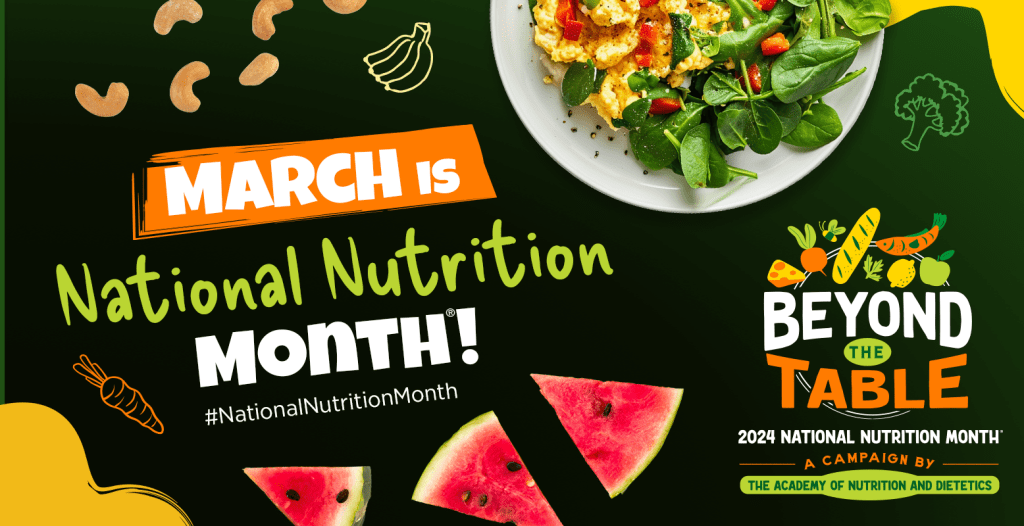
National Nutrition Month, an annual event that takes place in March, is a time for people to learn more about nutrition, the role nutrition plays in health and how to meet their personal nutrition needs. The 2024 National Nutrition Month’s theme is “Beyond the Table” which looks at the role of food production and distribution, as well as the ways in which nutritional meals may be enjoyed outside of a traditional dining setting. Below are some ways in which you can speak with your patients about the importance of nutrition.
The Academy of Nutrition and Dietetics is a valuable resource to share with patients interested in making changes to their current diet or those interested in receiving help from a registered nutritionist. The Academy’s website features information about food groups, food safety, fitness tips and recipes. The Find a Nutrition Expert database contains contact information for credentialed nutrition and dietetics providers and includes in-person or telehealth providers. Last, 50 Ideas to Get Involved in National Nutrition Month will encourage your patients to think about nutrition in new ways, educate their local community and test weekly meals and food groups that they may be unfamiliar with.
Himmelfarb Library’s catalog has a wide range of educational materials related to nutrition and public health. The Nutrition Research Guide is a great resource for library books, journals and other professional information such as data and statistics. Library research guides are useful for quick reference or for locating a resource based on a specific subject. Our guides change over time as library staff locate new and relevant information, so be sure to check the guide’s homepage often for updated information.
The GW Culinary Medicine Program offers an elective for 3rd and 4th year medical students as well as free courses (both virtual and in-person) for the general public. During the classes “participants will learn to cook healthy, delicious recipes and learn basic nutrition concepts such as building a healthy meal, eating on a budget, meal planning, and how to use leftovers.” (MD Culinary Medicine Program, n.d.) The program’s Culinary Medicine elective is offered during fall and spring semesters to third and fourth year medical students. The purpose of the elective is to provide “students the skills to teach patients how to incorporate healthy eating for the prevention and treatment of diseases by altering their diets, meal preparation and food choices.” (MD Culinary Medicine Program, n.d.) If you are interested in a hands-on approach to learning about nutrition, visit the Culinary Medicine Program’s website.
National Nutrition Month is a great time to discuss nutrition in an inclusive and gentle way. For many people, nutrition is a difficult topic because of preconceived notions about healthy food, costs associated with a “healthy” lifestyle or anxiety surrounding food and food rules. By approaching these conversations with empathy and active listening, you can work alongside your patients to break down food stigma and slowly introduce healthy eating habits to meet nutritional needs.



